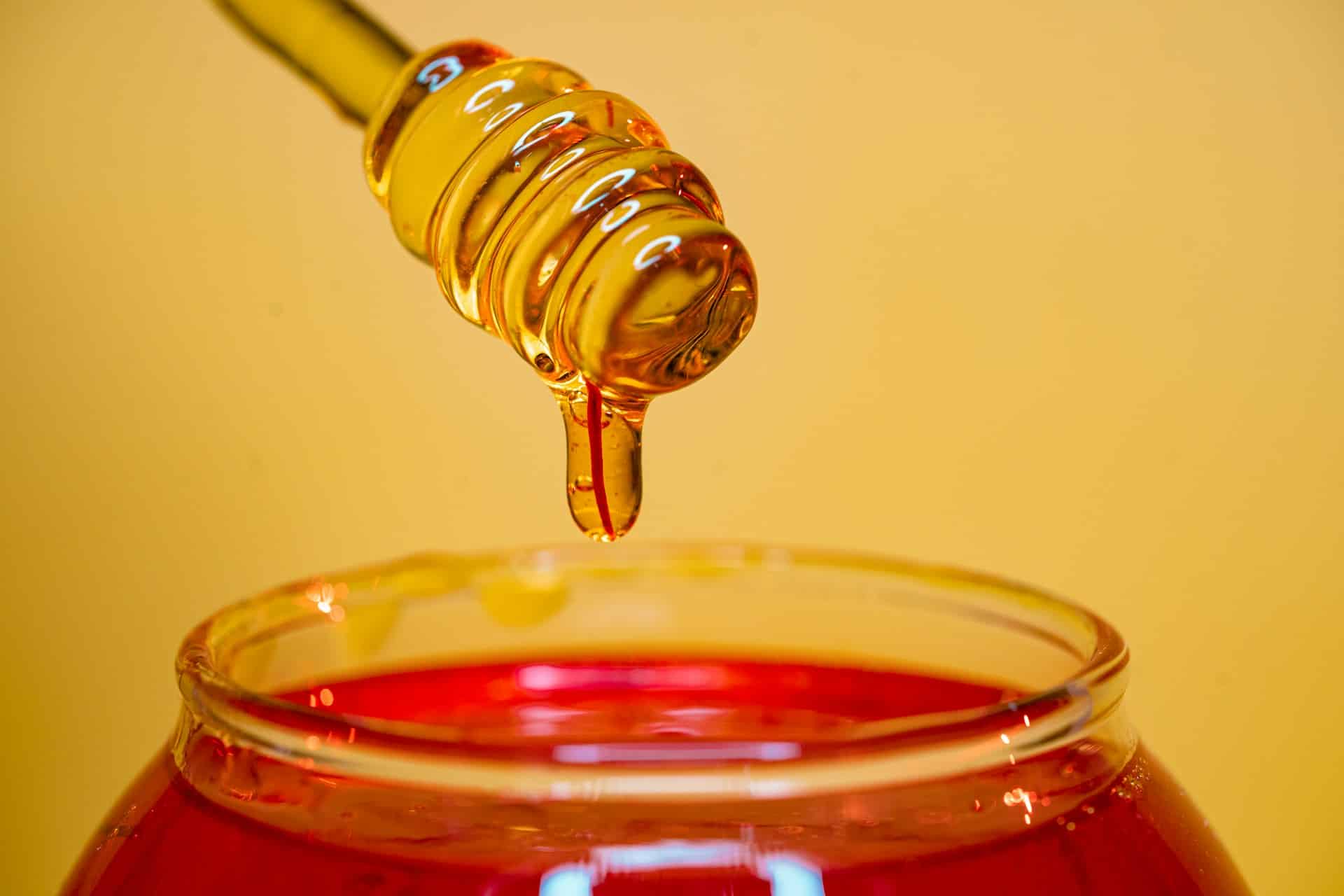
08 Aug Are Natural Sweeteners Like Honey Better for Your Teeth Than Sugar?
Unfortunately, just because a food is natural doesn’t mean it’s better for your teeth. Even though honey has some amazing healing properties, it also has a lot of sugar. To protect your dental health, it’s better to go with sugar-free sweeteners like stevia or monk fruit extract. We compare the best natural alternatives to sugar and explain why honey is—and isn’t—good for your teeth.
Is Honey Better for Your Teeth Than Sugar?
When it comes to dental health, natural sweeteners like honey, molasses, maple syrup, and agave nectar are usually just as bad as sugar. Out of all of these sweeteners, honey is definitely the best for your teeth. Honey has natural antibacterial and anti-inflammatory properties that promote good dental health. (That’s why we included it in our recipe for a natural dry socket remedy.)
Like honey, maple syrup also has antimicrobial and anti-inflammatory benefits. However, maple syrup and honey still have a very high sugar content. If you want to maintain good dental health, you need to be careful about how much sugar you consume.
Why Is Sugar So Bad for Your Teeth?
The bacteria that form plaque love to eat sugar. But when they do, they release acids that attack your teeth and gums. These acid attacks erode your tooth enamel and cause cavities. They also irritate and inflame your gums, causing gingivitis. The more sugar you eat—and the more often you eat it—the more your dental health will suffer.
However, that doesn’t mean you have to give up sweets entirely. If you want the sweetness of sugar without the cavities, there are some tooth-friendly options. Plant-based sweeteners like stevia, xylitol, and monk fruit all have cavity-fighting properties. Because the bacteria in plaque can’t eat these sugar-free sweeteners, they actually prevent acid attacks instead of causing them.
Which Natural Sweeteners Are Best for Your Teeth?
Sugar-free doesn’t always mean you have to go with a chemical sweetener like aspartame. Fortunately, for those of us with a sweet tooth, there are natural, sugar-free alternatives. Xylitol, stevia, and monk fruit extract (as mentioned above) contain no sugar, yet they are all many times sweeter.
Xylitol—This cavity-fighting sweetener is already a common ingredient in toothpaste, mouthwash, and chewing gum. You can even buy a powdered form to use in place of sugar. However, xylitol is toxic to dogs, so if you have pets, it’s not the best option
Stevia—Also known as “the sweet leaf” stevia is often found in sugar-free soda. Even though most sodas have citric acid (which is bad for your teeth) stevia sodas are a better alternative, because the stevia helps neutralize acids in your mouth. You can buy stevia in powdered or liquid form and use it to sweeten your own drinks, like sweet iced tea or watermelon fresca.
Monk Fruit—Although there is not much research yet into its effects on dental health, monk fruit extract is another powerful sweeter that’s also sugar-free. It has antibacterial and anti-inflammatory properties, and has been used in traditional Chinese medicine for centuries. The FDA has approved it as safe, even for children and pregnant women.
Natural Dental Care in Prescott, Arizona
Are you looking for safer, more natural alternatives to conventional dental treatments?
At Prescott Dentistry, we use biologically compatible materials to restore damaged teeth, instead of the standard amalgam or composite fillings. We also offer holistic treatments like oxygen therapy, natural alternatives to fluoride, biocompatibility testing, and more.
If you’re wondering what holistic dentistry is all about, come and experience the difference for yourself! Contact us to make an appointment today.
Photo by Benyamin Bohlouli on Unsplash used with permission under the Creative Commons license for commercial use 7/30/2024.



